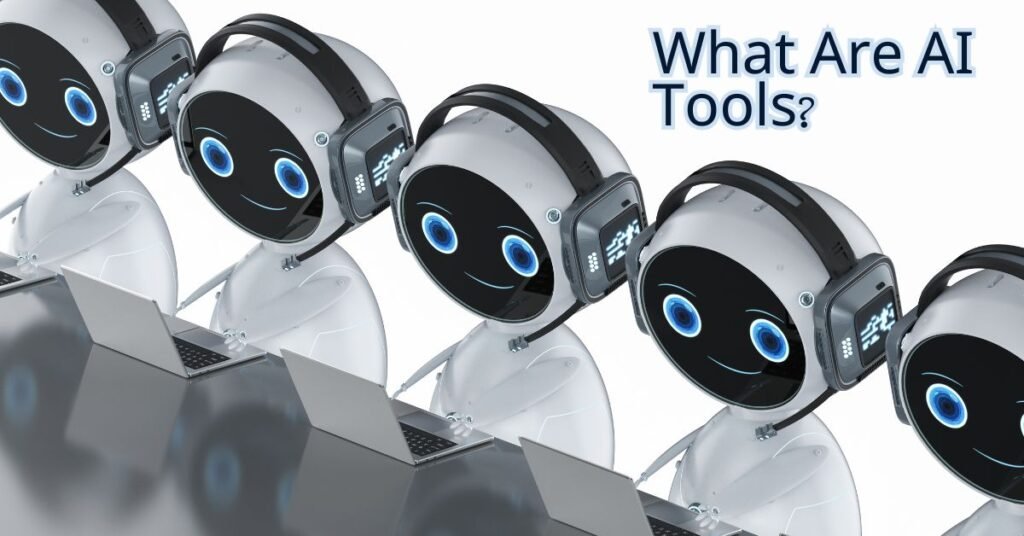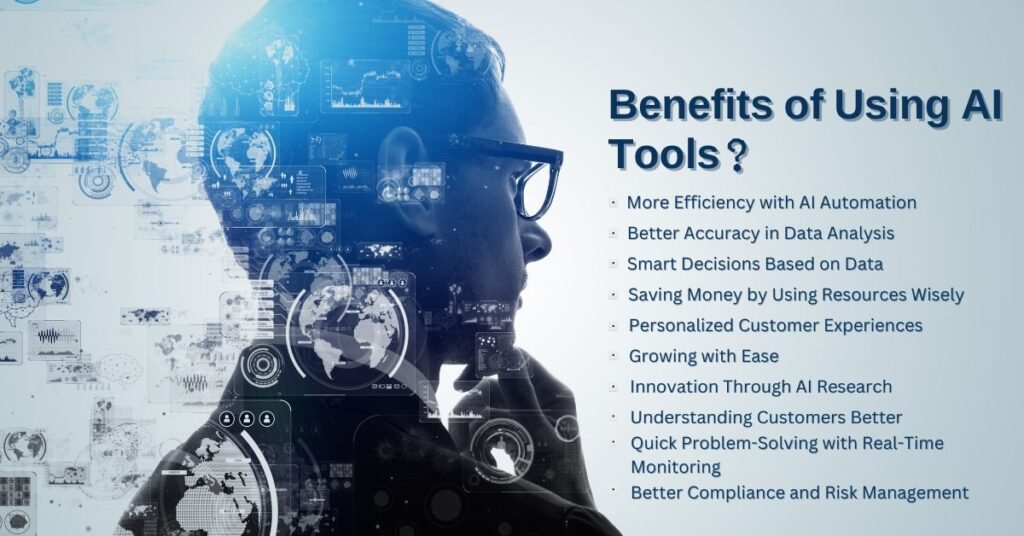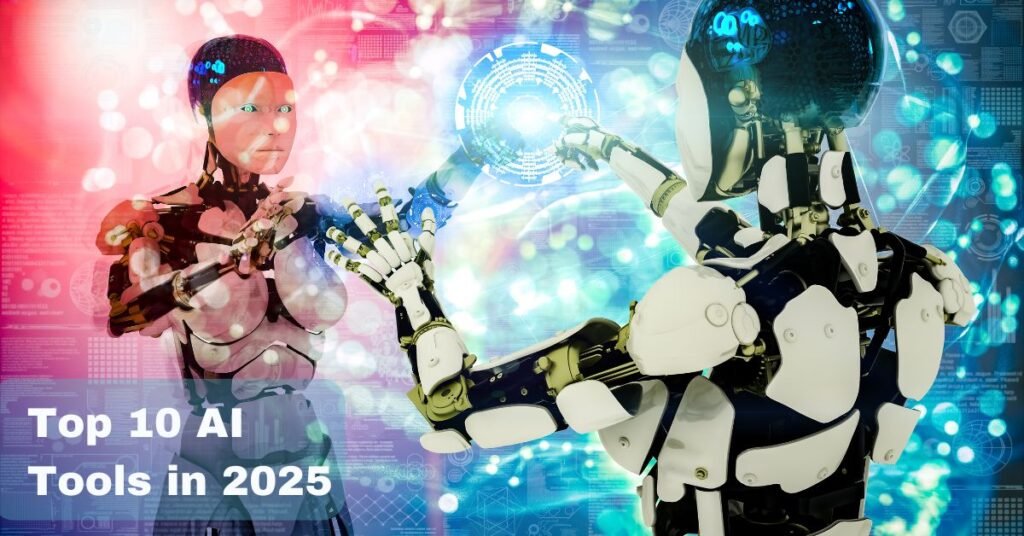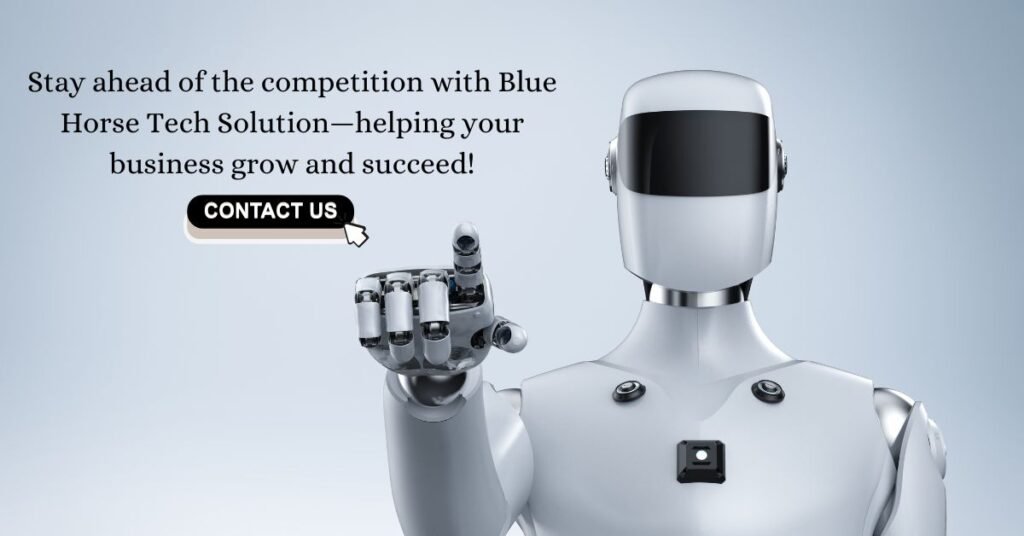What is AI? (Artificial Intelligence) Many people wonder about AI: What is it? Where does it come from? How has it evolved, and what might it do for technology in the future? AI, or Artificial Intelligence, refers to systems or machines that simulate human intelligence to perform tasks and can improve over time through learning. AI appears in many forms, such as virtual assistants like Siri and Alexa, chatbots that handle customer service, and recommendation systems used by Netflix and Amazon. With AI tools in 2025, these capabilities are expected to advance even further, driving efficiency and innovation across industries.
As of 2024, over 75% of businesses are integrating AI into their operations to enhance efficiency and innovation. For example, AI-powered tools are being used to automate routine tasks, analyze large datasets for insights, and even predict market trends. According to a recent study, 60% of companies that adopted AI saw a significant increase in productivity and 40% reported better decision-making capabilities.
AI tools are among the most exciting and impactful technologies for businesses today. They can automate repetitive tasks, provide valuable insights from data, and enhance customer experiences.
In this blog, we will explore the top 10 AI tools for 2025 that can help make your business more efficient, innovative, and successful.
What is Artificial Intelligence (AI)?
Artificial Intelligence (AI) is the ability of a computer or machine to perform tasks that usually require human intelligence.
AI is like giving a computer the ability to think and make decisions on its own. Imagine a robot that can understand your voice, recognize your face, or solve problems without needing human help.
For example, when you use voice assistants like Siri or Google Assistant, they understand what you’re saying and respond correctly—that’s AI in action. AI helps machines learn from experience and improve over time, making them smarter and more useful in doing tasks that usually need a human brain.

What Are AI Tools?
AI tools are applications or systems that leverage artificial intelligence to perform specific functions more efficiently and effectively than traditional methods. These tools can analyze large amounts of data, automate repetitive tasks, and provide insights to drive better decision-making. By integrating AI tools into their operations, businesses can improve productivity, enhance customer experiences, and gain a competitive edge.

What Are the Benefits of Using AI Tools?

More Efficiency with AI Automation
AI tools make work easier by handling repetitive tasks like data entry and scheduling. This means less manual work and fewer mistakes, letting employees focus on more important and creative tasks, which boosts productivity.
Better Accuracy in Data Analysis
AI is great at analyzing lots of data quickly and accurately. It can spot patterns and problems that humans might miss. For example, in finance, AI can find suspicious transactions. This helps make better decisions and avoid costly errors.
Smart Decisions Based on Data
AI provides useful insights from data to help businesses make better decisions. It can predict future trends using past data, which helps companies plan and stay ahead of the competition.
Saving Money by Using Resources Wisely
AI saves money by automating tasks and making processes more efficient. For example, chatbots can answer many customer questions, so you need fewer staff. This reduces costs and helps businesses use their resources better.
Personalized Customer Experiences
AI makes customer experiences more personal by analyzing preferences and behavior. It can recommend products or content based on past activities, making customers happier and more loyal.
Growing with Ease
AI systems can handle more work as a business grows. They manage more data, customer interactions, and complex tasks, keeping operations smooth even as things get bigger.
Innovation Through AI Research
AI helps with new ideas and improvements by analyzing research and suggesting new possibilities. It speeds up product development and helps businesses stay ahead with fresh strategies.
Understanding Customers Better
AI helps businesses understand their customers by looking at data from social media, purchases, and feedback. This helps in creating more effective marketing strategies and improving customer satisfaction.
Quick Problem-Solving with Real-Time Monitoring
AI spots problems quickly by monitoring systems in real time. It can detect issues early, like in IT, and fix them before they become big problems, keeping everything running smoothly.
Better Compliance and Risk Management
AI helps businesses stay compliant with laws and manage risks by continuously checking regulations and standards. It automates compliance checks, reducing the chances of legal issues and helping maintain a good reputation.
Top 10 AI Tools in 2025

Generative AI for Content Creation
Generative AI tools are revolutionizing content creation by producing high-quality text, images, and videos. Tools like OpenAI’s GPT-5 and DALL·E 4 can generate engaging blog posts, social media content, and marketing materials, significantly reducing the time and effort needed for content production.
AI-Powered Customer Service
AI-powered chatbots and virtual assistants are transforming customer service by providing instant support and resolving queries efficiently. Tools like Zendesk AI and Drift use natural language processing to understand and respond to customer inquiries, improving satisfaction and reducing response times.
Predictive Analytics
Predictive analytics tools, such as IBM Watson and Microsoft Azure AI, use historical data and machine learning algorithms to forecast future trends and behaviors. These tools help businesses anticipate market changes, optimize inventory, and make data-driven decisions.
AI-Driven Process Automation
AI-driven process automation tools, like UiPath and Automation Anywhere, streamline repetitive tasks and workflows. By automating processes such as data entry, invoice processing, and customer onboarding, businesses can increase efficiency and reduce operational costs.
AI-Enhanced Cybersecurity
AI-enhanced cybersecurity tools, such as Darktrace and CrowdStrike, use machine learning to detect and respond to security threats in real-time. These tools analyze network traffic, identify anomalies, and protect against cyberattacks, safeguarding sensitive information.
AI for Human Resources
AI tools for HR, like HireVue and Pymetrics, assist in recruitment, employee engagement, and performance management. These tools use AI to analyze resumes, conduct video interviews, and assess candidate fit, streamlining the hiring process and improving talent acquisition.
AI for Supply Chain Management
AI tools for supply chain management, such as Llamasoft and Kinaxis, optimize logistics, inventory management, and demand forecasting. By analyzing data from various sources, these tools enhance supply chain visibility and efficiency, reducing costs and improving service levels.
AI for Marketing and Sales
AI tools for marketing and sales, like HubSpot and Salesforce Einstein, analyze customer data to deliver personalized marketing campaigns and sales strategies. These tools use AI to segment audiences, predict customer behavior, and optimize lead generation efforts.
AI for Research and Development
AI tools for research and development, such as DeepMind and NVIDIA CUDA, accelerate innovation by analyzing complex datasets and simulating experiments. These tools support advancements in fields like drug discovery, materials science, and product development.
AI for Personalization
AI tools for personalization, like Segment and Dynamic Yield, tailor user experiences based on individual preferences and behaviors. By analyzing data from user interactions, these tools deliver personalized recommendations, content, and offers, enhancing customer satisfaction and loyalty.
The Future of AI Tools Beyond 2025

AI tools for personalization, like Segment and Dynamic Yield, tailor user experiences based on individual preferences and behaviors. By analyzing data from user interactions, these tools deliver personalized recommendations, content, and offers, enhancing customer satisfaction and loyalty.
As we move closer to 2025, AI technology is evolving at an incredible pace. This rapid advancement is opening up exciting new opportunities for businesses. Here’s a look at what’s on the horizon and how AI tools will shape the future:
1. Increased Sophistication and Capability
AI tools are becoming smarter and more capable every year. New developments in machine learning and natural language processing are making these tools more accurate and efficient. For example, recent advancements in AI models like OpenAI’s GPT-5 are improving how machines understand and generate human-like text. This means businesses can expect even more powerful tools for automating tasks, analyzing data, and enhancing customer interactions.
2. Enhanced Data Integration
The ability of AI tools to integrate and analyze vast amounts of data is rapidly improving. Companies are using AI to gather insights from multiple data sources, including social media, customer feedback, and market trends. For instance, AI-driven platforms like Microsoft Azure AI and IBM Watson are helping businesses make data-driven decisions with greater precision. As AI tools get better at handling data, businesses will be able to make more informed choices and predict future trends more accurately.
3. More Accessible AI Solutions
AI technology is becoming more accessible to businesses of all sizes. Tools that were once only available to large enterprises are now being offered as affordable solutions for small and medium-sized businesses. Services like Google Cloud AI and Amazon Web Services (AWS) are making it easier for businesses to implement AI without needing extensive technical expertise. This democratization of AI means that more companies can benefit from its capabilities.
4. AI in Everyday Business Operations
AI tools are increasingly becoming a part of everyday business operations. From automating routine tasks to enhancing customer experiences, AI is transforming how businesses operate. For example, chatbots powered by AI are now commonly used for customer service, while AI-driven marketing platforms help businesses create personalized campaigns. As AI tools become more integrated into business processes, companies will see improvements in efficiency and customer satisfaction.
5. New Frontiers in AI Innovation
The future of AI is not just about improving existing tools but also about exploring new frontiers. Innovations in AI research are paving the way for breakthroughs in fields like healthcare, finance, and manufacturing. For example, AI is being used to develop new drugs faster and more accurately, and in manufacturing, AI is improving supply chain management and predictive maintenance. These advancements will continue to drive growth and innovation across various industries.
6. Ethical and Responsible AI Use
As AI technology advances, there will be a growing emphasis on using AI responsibly. Companies will need to address ethical concerns related to privacy, bias, and transparency. Ensuring that AI tools are used in a way that respects user privacy and promotes fairness will be crucial for maintaining trust and compliance with regulations.

Conclusion
AI tools are transforming the business landscape by automating tasks, providing valuable insights, and enhancing customer experiences. By adopting the top AI tools of 2025, businesses can stay ahead of the competition, improve their operations, and achieve greater success. Embracing AI technology not only offers immediate benefits but also positions businesses for long-term growth and innovation. Ready to boost your business with the latest AI tools? Contact Blue Horse Tech Solution today for a detailed consultation. Our team will help you use AI in a way that fits your business perfectly, so you can find new opportunities and grow sustainably. Don’t miss out on the future of technology—get in touch with us now!
